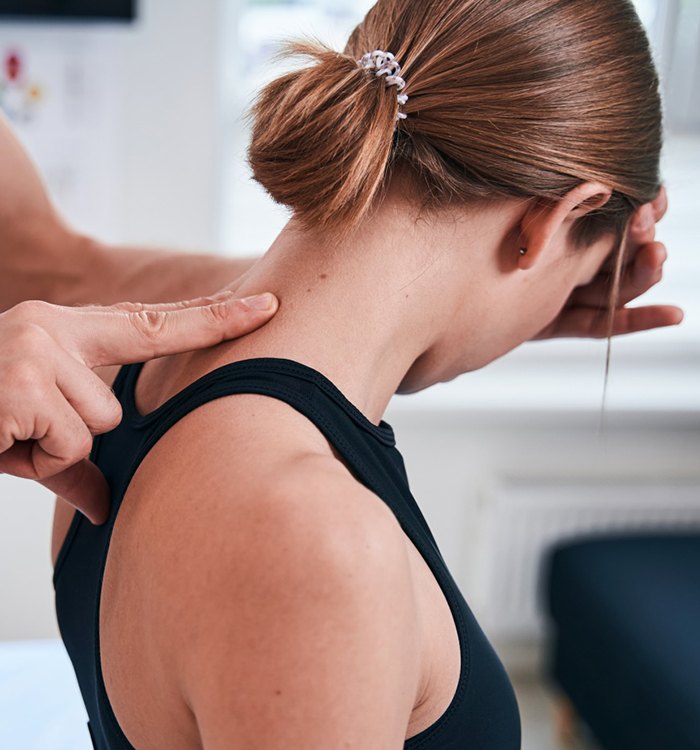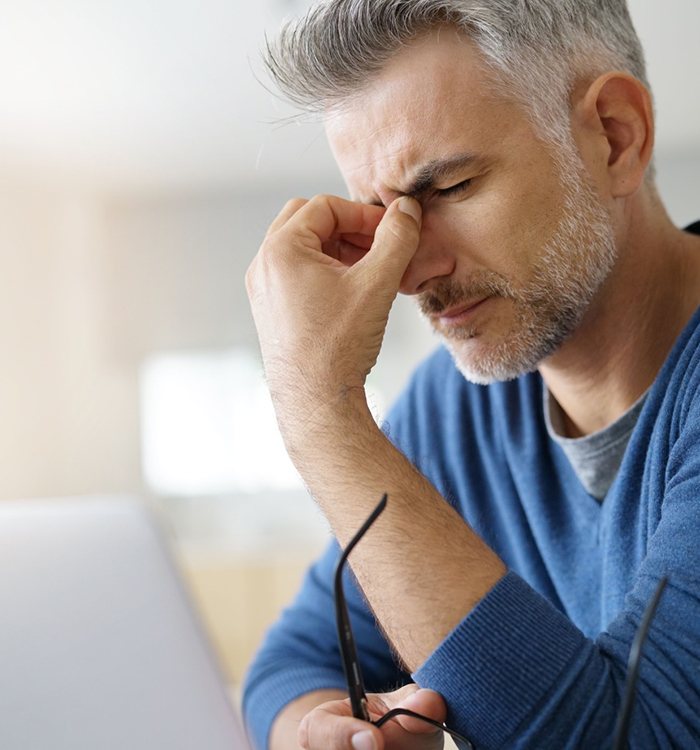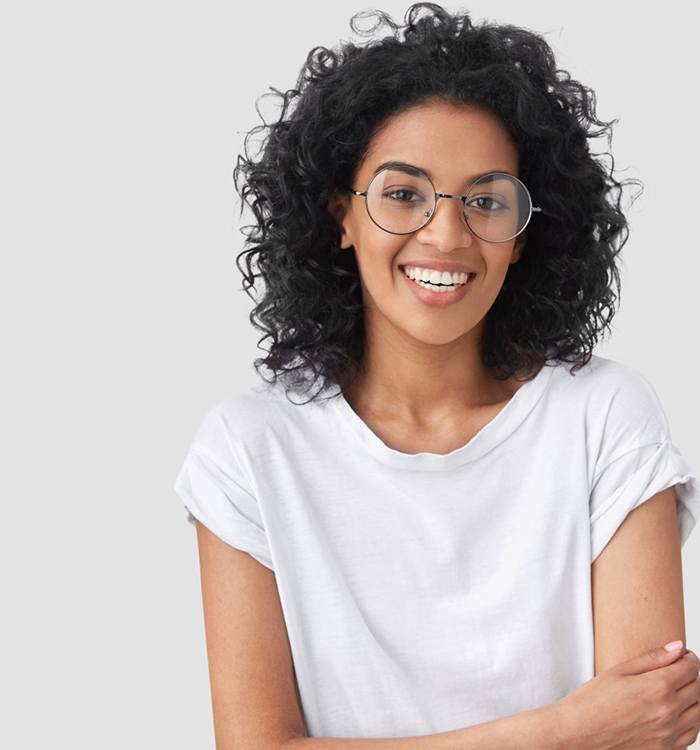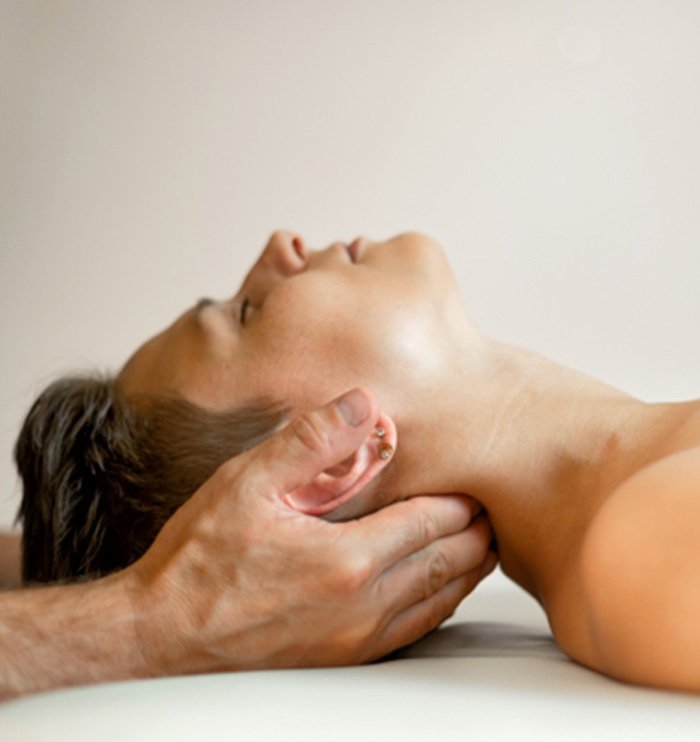
Cranial Osteopathy – Asheville, NC
Gentle and Effective OMT
Do you often suffer from anxiety, poor-quality sleep, or headaches? Such issues can have a number of different causes, and you should certainly seek professional medical care in order to find relief. After a consultation with Dr. Pinkston, he may recommend that you undergo cranial osteopathy in Asheville. This noninvasive and gentle treatment has the capacity to reduce pain, relief stress, lower tension, and provide other remarkable advantages. Read on below to learn more about what it is and how it may be able to benefit you.
Why Choose Asheville Non-Surgical Orthopedics for Cranial Osteopathy?
- Gentle, Completely Noninvasive Treatment
- Performed by Neuromusculoskeletal Specialist
- Suitable for a Range of Conditions
What Is Cranial Osteopathy?

Cranial osteopathy is a form of osteopathic manipulative treatment (OMT). OMT is a type of therapy that involves manipulating the body in a way that encourages healing, improves mobility, and stimulates the body’s natural healing processes. Visually, it can look similar to chiropractic or conventional physical therapy (although the underlying principles are somewhat different).
Cranial osteopathy is a focused type of OMT. It supports whole-body wellness, but it focuses primarily on manipulating the head, neck, and spine. It involves gentle, precise movements that promote proper fluid circulation in the head and spinal area.
What Issues Can Cranial Osteopathy Treat?

Here are some conditions that cranial osteopathy may be used to treat:
- Headaches and migraines. In many cases, cranial osteopathy is able to reduce the pain caused by headaches and migraines. It may also reduce the frequency of such problems.
- Poor sleep. It is common for patients to report improved sleep quality after undergoing cranial osteopathic treatment.
- Anxiety and stress. A cranial osteopathy session can be quite relaxing. Many patients experience a significant reduction in stress and anxiety.
- Tension. Tension in the muscles of your head, neck, and spinal area can be uncomfortable. It can also heighten your risk of injury. Fortunately, cranial osteopathy is often able relieve such tension.
- Tinnitus. Tinnitus, commonly known as “ringing in the ears,” can often be addressed via cranial osteopathy.
- Issues in infants. Cranial osteopathy for infants may be able to help with head deformities, reduce colic, and promote successful breastfeeding.
- Other conditions. Some believe that cranial osteopathy may be able to play a role in helping with cancer, cerebral palsy, and seizures.
Is Cranial Osteopathy Right for You?

As an experienced Doctor of Osteopathic Medicine, Dr. Pinkston can evaluate your situation and determine whether cranial osteopathy may be a fit for your situation. Some factors that he will consider include your medical history, your symptoms, and whether you have undergone testing for conditions that may be contributing to your discomfort. He may recommend cranial osteopathy as part of a treatment plan that incorporates multiple therapies, or he might offer it as a standalone treatment. You can trust him to use all his experience and knowledge to your advantage. Would you like to learn more about cranial osteopathy? Get in touch with our Asheville office today.
Cranial Osteopathy FAQs

Do you think cranial osteopathy may be able to benefit you? Of course, you may want to learn more about it before you request your first session. Below, you will find answers to some FAQs about this unique type of osteopathic manipulative therapy. If you do not see your questions addressed here, call our team. We are always happy to talk with prospective patients. We want to empower you to make smart decisions about your care!
Is Cranial Osteopathy the Same as a Head Massage?
To a casual observer, cranial osteopathy might look similar to a common head massage, such as what you might receive at a hair salon or massage parlor. However, while there are visual similarities between the two, they are actually very different, both in their techniques and objectives.
Massage techniques focus on muscles. An effective massage can reduce tension by helping patients to relax and lowering their stress levels. Cranial osteopathy is different because it focuses on the bones and other tissues in the head. Its goal centers on diagnosing and treating a range of ailments.
Can a Chiropractor or Massage Therapist Perform Cranial Osteopathy?
No. Cranial osteopathy is a technique offered almost exclusively by Doctors of Osteopathic Medicine. Other care providers, including chiropractors and massage therapists, have not completed the extensive and specific training that would enable them to provide safe, effective cranial osteopathic therapy.
How Many Sessions of Cranial Osteopathy Will I Need?
The number of cranial osteopathy sessions that you need is not easy to predict. When you come in for your first appointment, Dr. Pinkston will examine you so he can gather information about your unique needs. Before he recommends any treatment plan, he will determine whether you are a good candidate for cranial osteopathy.
If he believes that cranial osteopathy could benefit you, it might take a couple of sessions just to reach an accurate diagnosis of the problems that are affecting you. Once that has been accomplished, the process of addressing your symptoms could require several additional visits. How quickly you will notice results will depend on how your unique body responds to the treatment.
What Does Cranial Osteopathy Feel Like?
During your sessions, you can expect Dr. Pinkston to place gentle pressure on different parts of your head. He may also gently manipulate your head. Unlike at a chiropractic session, there will be no sudden or jerky movements.
The specific techniques used by Dr. Pinkston may focus on only certain areas of your face or head, depending on your needs.
It is common for patients to feel refreshed and invigorated after a cranial osteopathy appointment. Soreness and other unpleasant side effects are uncommon.